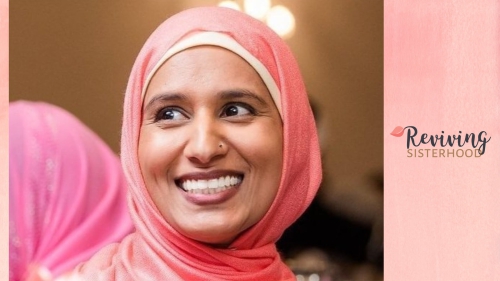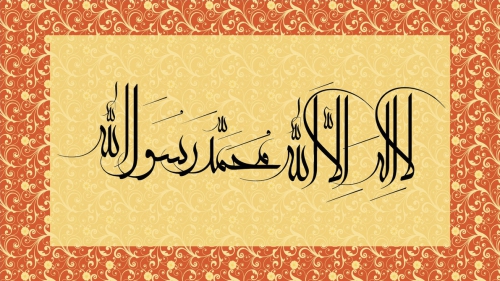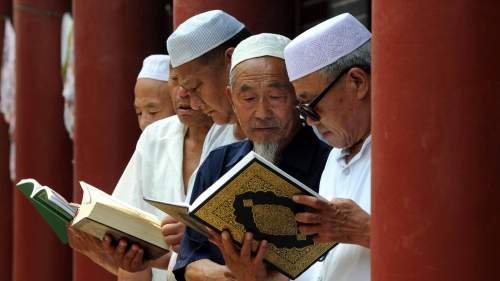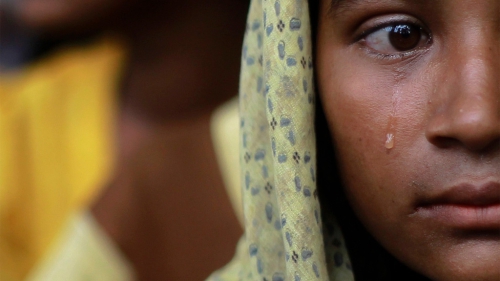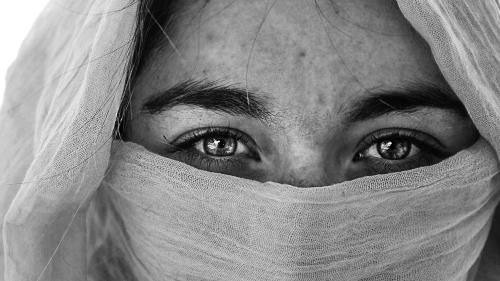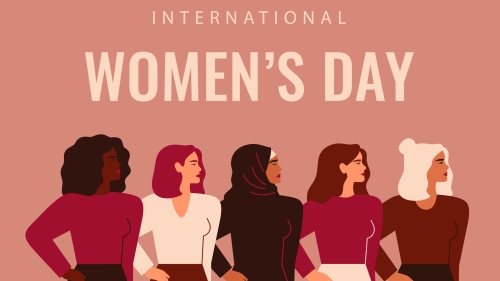Thou Mayst Kill!

- Here's the smell of blood still; all the perfumes of Arabia will not sweeten this little hand.
But many of the human rights activists in Pakistan will. So long as the hand is not masculine. We have all 'heard that it was said by them of old time, Thou shall not kill'. Now, hear this: [Woman] Thou mayst kill. Thou mayst take the life of another human and yet live thine.
O Judgment! Thou art fled...
And men have lost their reason
There are many in our society who hailed efforts of the federal cabinet of the previous government to exempt women from capital punishment. That government is gone for now. But those who raised victory signs after the federal cabinet's decision in June 1996 to have this law passed are very much there. The issue is therefore alive: Should the Pakistani woman be exempted from capital punishment?
There is no doubt about the fact that women face many hardships in our society and that a great part of the work being done by human rights and women's rights activists to alleviate the suffering of the average Pakistani woman is truly worthy of praise in spite of being merely palliative at best. There is also no doubt that unfortunately many of her troubles are the result of misinterpretation of Islam. Yet, the solution lies neither in breaking away from a religion which pervades society nor in using impractical strategies to implement the directives of such a religion.
What is required is a thorough study of Islam vis--vis the social problems in question so that correct interpretation of religion is made and viable solutions of the problems are worked out. For this purpose, religious scholars should also be consulted.
Governments which deviate from religious norms of our society to solve its problems not only face scorn from many religious quarters, which have a strong hold on the minds of the masses, but also fail to realize that in a society as ours it is almost impossible to convince the majority of people, including the victims of misinterpreted religious directives, to alienate themselves from long held views.
Similarly, those who, in their haste to score political wins, resort to badly worked out strategies to implement Islamic laws either retrieve embarrassingly from their own stance (which, by the way, rarely makes any difference to them) or unnecessarily make the victims of religious misinterpretation and their sympathizers averse to Islam.
Without correct interpretation based on thorough research work on Islam and wise policies for implementing its directives, social problems as are usually confronted by women in our society are bound to remain. Those working for women's rights may have helped many women, but the cries of thousands of others still remain unheard. How many women -- and their male relations -- would benefit if it were conclusively proved to our legislature that at no place does the Qur'an even concern itself with the worth of a woman's testimony in contrast with that of a man's?1 How much confusion could have been avoided if it were known that Diyyah2 of a woman is not half that of a man and that the Qur'an leaves the question of the amount of Diyyah, whether of a man or of a woman, to equitable conventions of society?3 How much of the embarrassment and pain many young ladies and their families faced could have been averted if it were clear that the condition of Wali's4 consent in marriage is not one the absence of which makes a contract of marriage void ab initio (therefore there are no grounds for indicting those who have had court marriages for fornication), and, that in cases where deviation is made from this norm of an Islamic society of having Wali's consent in marriage5, the fate of the marriage should be decided by the court, which should keep in mind the principle that in the absence of a general awareness of the correct law, there is a great room in Islam for lighter penalties and in some cases even for exoneration?6.
In all these cases, an in-depth study of the original sources of knowledge on Islam and greater discretion in the implementation of its laws would have solved the problems which many had to face unnecessarily.
The idea of exempting women from capital punishment is also not consistent either with Islam or with dictates of common sense.
The point that needs to be understood here is that in Islamic law, just as in any other system of law, the punishments for various crimes are the ultimate form of legal chastisement prescribed, which means that there is room, on the basis of extenuating circumstances, for lighter sentences. Whether or not the circumstances in a particular case are extenuating is a matter for the court to decide.
Among factors on the basis of which allowance may be given, mental, moral and social condition of the offender, his or her intention and the elements of coercion and undue influence must also be given their due weight.
For example, in the following instances, there is an obvious ground for alleviation:
i) theft of food to assuage pangs of sheer hunger.
ii) killing an assailant who, if left alive, would have taken the person's life; in other words, killing for self-defense.
iii) a crime committed in innocence by a mentally delinquent person or a child.
iv) prostitution by a woman under coercion (see the Qur'an 84:33)
v) fornication by a woman brought up in conditions of such deprivation that she never had a proper chance to imbibe the norms of morality; for example, only half the punishment for fornication was prescribed for slave-girls in the Prophet's time (sws). (See the Qur'an 4:25)
There is even room for lighter sentences in cases of recidivists and perverts who become a danger to the society or the state, and to this category belong the likes of rapists, robbers and serial killers for whom the punishments in Islam are more harsh than for the ordinary criminal. For example, a person found guilty of fornication is given a hundred stripes whereas a pervert who shatters the honor of scores of families is killed in a ruthless manner (for example by stoning him to death) so that the punishment may serve as a reminder to all.7 But even in such cases, a lighter sentence of banishment may be given if there is a reasonable basis for such allowance.8
In all these cases, the basis for alleviation is extenuating circumstances, not sex. The context of the relevant verses in the Qur'an refuses to accept any distinction in this regard merely on the basis of gender9. In fact, in case of extramarital sex, the woman has been mention before the man, even though in this case Women's Lib workers would probably prefer a deviation from their cherished principle of Ladies First.10
It should be obvious from the points made above that the severity in meting out these punishments is justified by virtue of the fact that these punishments are awarded only after it is thoroughly determined that there is no reasonable basis for any alleviation. Thereafter, acquitting or exonerating a criminal amounts to condoning his or her crime, and this attitude often leads to personal vendettas, which shake the foundation of society.
In Mario Puzo's novel, The Godfather, Amerigo Bonesera decides to go to Don Corleone (a Mafia chief) when a New York judge acquits the two young ruffians -- one of them the son of a powerful politician -- who had brutally assaulted Amerigo Bonesera's lovely, young daughter. It is then that the law-abiding Amerigo Bonesera, who had always believed in America, says to his uncomprehending wife: 'They have made fools of us. We must go to Don Corleone for Justice.' The Qur'anic verse 'in Qisas11 there is life for you...' (2:179) refers to the fact that when the state lets a criminal walk away and in that way deprives people of justice, more often than not they go to Don Corleone for it.
The following words of the Prophet of Allah (sws) indicate how important justice is in such matters:
- By God, if Mohammad's daughter Fatimah had committed theft, I should have definitely cut off her hand (Muslim, Kitab-al-Hudud)
If the Prophet of Allah (sws) was not ready to give allowance on any basis apart from 'extenuating circumstances', no one else has the right to.
This principle, however, does not mean that due weight should not be given to other dictates of common sense and good judgment. For example, while deciding whether a person is guilty of theft or not, it should not be ignored that the words used by the Qur'an are Al-Sariq and Al-Sariqah (the thief -- man and woman) not man saraqa (one who commits theft), which implies that only such a person as can be called a 'thief' in the usual sense of the word be awarded the punishment of amputation. In other words, if a child takes out a few candies from his or her mother's cookie jar, it cannot be said that the child is a 'thief' in the usual sense of the word. Similarly, if a wife takes out a few rupees of her husband, without his permission, to meet some immediate need, she does not become a 'thief'.
Any woman -- or man -- deserves alleviation on the basis of the factors mentioned above. But to say that the Pakistani woman inherently deserves exemption from capital punishment is tantamount to an insult to her intellect and to the society as a whole.
Those who advocate a general immunity for women from capital punishment may be asked many questions before their point of view is accepted:
- i) Are women to be generally categorized among those whose intellectual level is close to that of a child or a mentally delinquent person, who are inherently not liable for their actions?
ii) What if a woman murders a woman? What if no extenuating circumstances whatsoever exist in case of the murderess? Will she be exonerated merely because of her femininity?
iii) Wouldn't it be better to decide the fate of each criminal -- man or woman -- on a case to case basis rather than granting women general immunity and then incriminating a woman as an exceptional case when no basis for any allowance is found?
iv) If our society has deteriorated to the extent that all women, or most women, live in such deplorable conditions as give them a reasonable basis to commit murder to allay their suffering, then isn't much more required to wipe such an ugly blot from the face of our society than just legal immunity for a murderess? And if our society has truly degenerated to that extent, then why even life sentence for a woman?
v) Is the cure for social evils permission to fight them with greater evil? If a woman is harassed by a man (or a woman -- as is the case in many domestic disputes), why not make effective laws to punish the man at that point rather than letting things go so far that the women feel compelled to do murder and then giving her a life sentence? Why not try to make her family life better rather than facilitating her in becoming a murderess? Is this sympathy with women? Is that the kind of mother we are helping a woman to become?
To allow a lesser evil to avert a greater one is understandable, but to allow a greater evil to avert a lesser one is simply beyond comprehension. Isn't it this perverse line of thinking which makes people sympathize with a woman who decides to murder her unborn child -- the consequence of rape -- but does not encourage society to bow down its head in shame and to show her respect and to regard it a matter of great honor and privilege if some young, respectable man comes forward to take her hand and share her grief?
The truth of the matter is that the wisdom in the Divine law cannot be surpassed. There is no doubt that the Qur'an has discriminated between a man and a woman as far as social responsibilities of each are concerned.12 But as far as responsibility towards God is concerned, each of them is liable for his or her actions:
- And covet not the thing in which Allah has made some of you excel others. To men shall be a reward [in the Hereafter] for what they had done [in the worldly life] and for women a reward for what they had done. (4:32)
Similarly, the Qur'an says:
- Whoever works evil shall be requited accordingly and he will not find, besides Allah, any protector or helper. If any do deeds of righteousness, be they men or women, and have faith, they shall enter Heaven and not the least injustice shall be done to them.(4:123&124)
1. See Shehzad Saleem, 'Method of Proving a Crime' and 'Testimony of Women', Renaissance, Vol.6, No.11 (November 1996): pp. 34--49.
2. Penalty for unintentionally causing death.
3. See Javed Ahmad Ghamidi, 'Hudud-o-Ta'zirat', Mizan (Urdu), (Lahore: Al-Mawrid, Institute of Islamic Research, 1994), pp. 33-41
4. Anyone who represents the whole family as its head and who is therefore usually a man in most societies. The plural (Awliya') may connote all the people in a family who are responsible for the person (man or woman) entering into a contract of marriage.
5. See the Qur'an (2:232). This verse of the Qur'an points out that when a Nikah (marriage) takes place with the mutual (and therefore free) consent of the bride and the bridegroom and in accordance with the equitable conventions of society, it is absolutely free of any legal or social objection. (The word ma'ruf connotes equitable conventions of society).
6. See Asif Iftikhar, 'Wali's Consent in Marriage', Renaissance, vol.6, No.12 (December 1996): pp.3--8.
7. See Ghamidi, op cit., pp. 10--19.
8. See the Qur'an 5:33&34.
9. For example, see the Qur'an 2:178&179, 5:38&39 and 24:2&3
10. Here, the woman has been mentioned first because in such cases there are chances of undue sympathy for the woman. The verses (5:38&39) go on to say that the element of sympathy should not dissuade the society from awarding the punishment to the man or the woman.
11. The Qur'anic concept of requital: 'equal' punishment to be awarded by the court to an offender: 'an eye for an eye and a tooth for a tooth' -- and a life for a life.
12. This division of responsibility, in accordance with the nature and inclination of each, is essential for a balanced and harmonious environment in family life. In fact, responsibilities have been divided not only between men and women but also among men (see the Qur'an 43:32)
Justice and development are not possible without discrimination. You don't treat a criminal and an innocent man in the same manner legally; similarly, you don't give the chartered accountant and the gatekeeper of your firm the same responsibilities, even though both deserve equal respect and succor as human beings. Each man and woman is important in his or her sphere of activity and will be rewarded in the Hereafter on the basis of his or her sincerity in fulfilling his or her responsibility. None of them is superior in the absolute sense to the other in Islam except by virtue of his or her piety.






